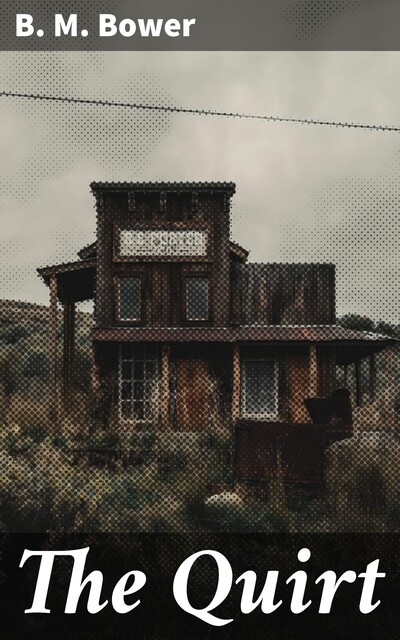Мы используем файлы куки, чтобы Bookmate и наши рекомендации работали лучше.
Подробнее на странице Политика Cookies
Подробнее на странице Политика Cookies
Принять все Cookies
Выбрать cookies
In B. M. Bower's captivating novel, “The Quirt,” readers are transported to the rugged landscapes of the American West, where the complexities of frontier life unveil themselves through engaging characters and vivid descriptions. Written in a distinctive style that blends humor with poignant observations, Bower's narrative immerses the audience in themes of resilience, love, and the struggle for identity, all set against the backdrop of a rapidly changing society. As the tale unfolds, the quirt'Äîa type of riding whip'Äîbecomes a powerful symbol of both personal empowerment and the often harsh realities of life on the frontier. B. M. Bower, a pioneer in the genre of Western fiction, drew from her own experiences in the American West, deeply influencing her literary voice and thematic choices. Growing up in Montana in the late 19th and early 20th centuries, Bower observed the trials and triumphs of those who daringly explored the untamed territories. Her personal insights and rich understanding of Western culture shape her narratives, allowing readers to connect profoundly with her characters and their journeys. For lovers of historical fiction and Western tales, “The Quirt” is a must-read that offers not only a compelling story but also a glimpse into the intimate struggles of a bygone era. Bower's expert storytelling invites readers to explore the complexities of human emotion and the spirit of adventure, making it a significant contribution to the genre.
больше
202 бумажные страницы
- Правообладатель
- Bookwire
- Дата публикации оригинала
- 2019
- Год выхода издания
- 2019
- Издательство
- Good Press
Уже прочитали? Что скажете?
👍👎
fb2epub
Перетащите файлы сюда,
не более 5 за один раз


